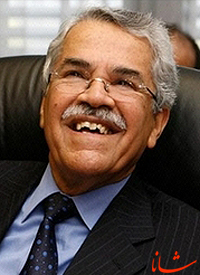Saudi Oil Minister Ali al-Naimi said in September the drive to conserve fuel could slow investment by producer countries. His comments on Wednesday were the strongest signal yet of the need for evidence that demand growth would justify new supplies.
The kingdom is on track to meet an existing capacity target of 12.5 million barrels per day (bpd) by the end of 2009 up from 11.3 million now. "Our feeling now with this thrust and push for conservation, efficiency and the use of alternatives is that we probably need not go beyond 12.5 million barrels per day," he said in Riyadh after a meeting of Middle East and Asian oil ministers.
"But that is just guessing right now because we don"t really know what the effect ... will be on demand. For now our plan is to reach 12.5 million in 2009 and then watch the market for further signals." Biofuels are the main alternative to oil for transport, but most projections suggest they will only satisfy a small proportion of motor fuel demand over the next decade.
Consumer anxiety over the world"s diminished spare capacity helped drive oil prices to a record near US$80 a barrel last year.
Saudi Arabia holds most of the world"s spare capacity, with just under three million bpd, and in the past has tapped that reserve when supply disruptions have threatened market stability. It is now pumping around 8.5 million bpd. The International Energy Agency (IEA), adviser to 26 industrialised nations, said it was not unduly concerned by the prospect of Riyadh capping its capacity expansion.
"They can put in extra capacity very quickly if they want to," said William Ramsay, the IEA"s deputy executive director. "They have the financial muscle and know-how to do it in three, four, five years."
A prolonged price rally that began in 2002 was also sparked by spectacular oil demand growth in China. Saudi"s Naimi underscored Asia"s role as a major consumer, saying the region would account for 70 per cent of the world"s future oil demand growth. Prices have since fallen back to around US$66 for benchmark Brent crude, but for some they are still too high.
The Saudi oil minister reiterated that the market not producers or consumers sets the price of oil, but vowed the kingdom would keep up with demand. Security of supply is a nagging worry for Asia, where economic expansion is leading to growing import dependence on the volatile Middle East. The region, home to 60 per cent of the world"s oil reserves, supplies Asia with 55 per cent of its oil.
PIN/REUTERS


Your Comment